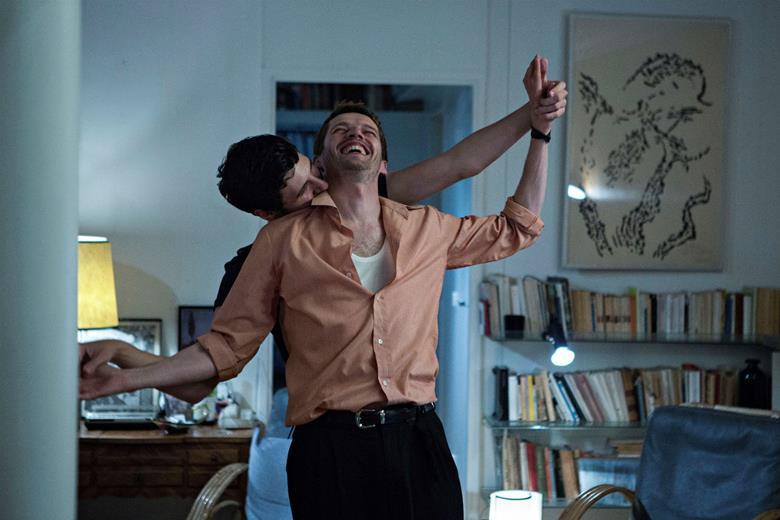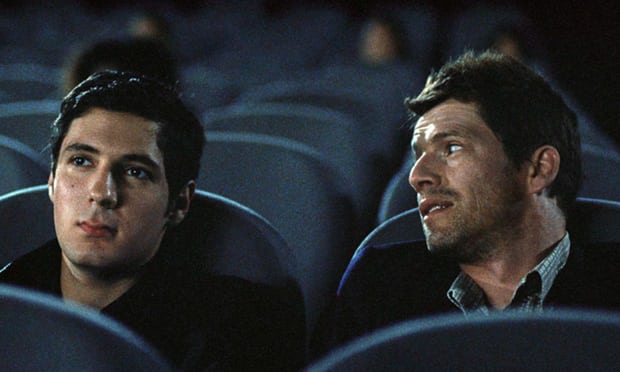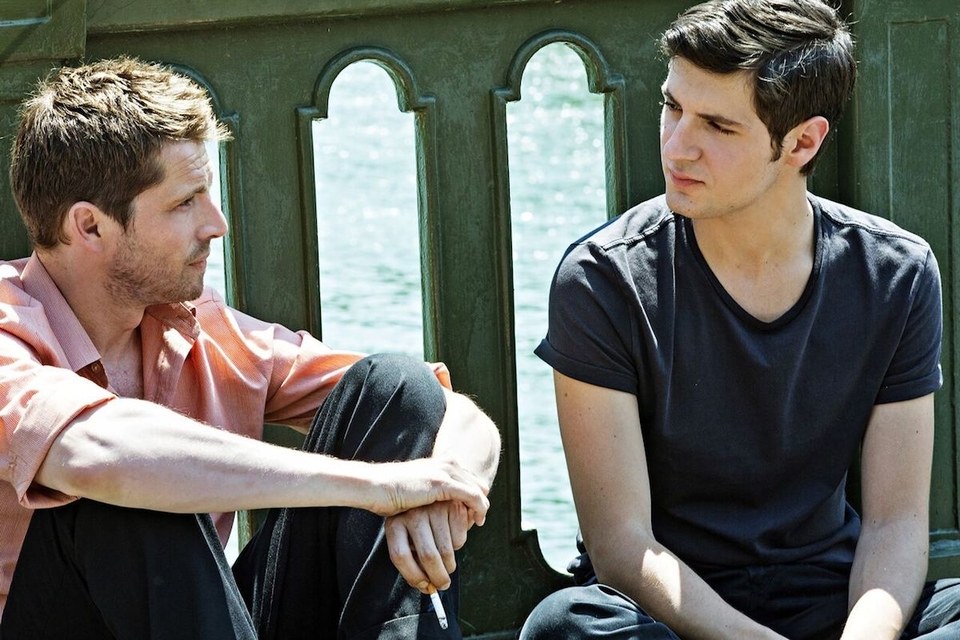Nowadays, there’s a tendency for directors to assume that queer characters’ lives are defined by the adversity they face. In the past year we’ve seen 120 BPM chronicle the trauma of life with HIV, and the strenuous work we have to do to make people sit up and take note. A month later, we were given The Wound, an impactful South African drama about how a young queer man comes of age in a society where he could be punished for acting on his natural impulses. True, both entries into the queer movie canon are nothing short of brilliant, but there’s a new one — one that just bowed at the Cannes Film Festival — that tries to do something different. From French director Christophe Honoré, Sorry Angel creates a new narrative. It doesn’t try to erase those struggles, but it neither are they the driving force. Instead, the film shows that gay men can face their own reality and can still have the kind of fluttering, care-free romances that heteronormative couples do.

“It was the backlash against gay marriage, marked by protests and a surge in flagrant homophobia, that led Christophe Honoré to want to tell this rare love story.”
Set in the early 90s France, Sorry Angel follows the lives of two gay men — Jacques, an ageing Parisian writer fighting HIV, and Arthur, a charismatic young filmmaking student from Brittany — as they fall for each other after a fleeting encounter in a movie theatre. The connection is vibrant and sudden; they live in different cities, so we watch their relationship bloom in an old-fashioned way: through letters, and phone calls made via telephone boxes. As Arthur starts to face the promise of his future as a fledgling auteur, Jacques is growing tired of the monotony of his daily life; time is on Arthur’s side, while Jacques doesn’t have enough of it. Despite that, the film unfurls slowly, letting you soak in every beatific, honey-sweet moment of the pair’s love.
It was the backlash against gay marriage, marked by protests and a surge in flagrant homophobia, that led Christophe Honoré to want to tell this rare love story. “As a gay artist, I felt like I hadn’t fully occupied the terrain that artists of my generation had failed to address,” he tells i-D, shielding from the midday riviera sun in an emptied-out bar off the Cannes’ famous Croisette. “I wanted to tell a story of a gay protagonist that [had the power] to change people’s perspectives on homosexuality… to avoid and break stereotypes.”
“Sorry Angel feels like the kind of film cis-het couples have long been afforded but that gay men rarely are.”
By loosely adopting some of the hallmarks of nostalgic 90s rom-coms — chance encounters, kids caught in the middle, a constant yearning to be closer to one another — Sorry Angel feels like the kind of film cis-het couples have long been afforded but that gay men rarely are. Perhaps that’s because their lives on film have historically been associated with social oppression and the AIDS epidemic. Sorry Angel isn’t wrapped up in those kinds of politics, but it still has distinctly queer blood coursing through its veins. That, according to Christophe, was entirely intentional. “I don’t strictly see myself as an LGBT activist, and I don’t deal with homosexuality as a subject in most of my films,” he admits — a stance that some people might find hard to swallow nowadays. “Often, when filmmakers deal with queer subjects, they feel like there has to be some sort of conflict between the private and the public — that just didn’t interest me at all.”
It’s quite likely that Sorry Angel will find fans in the same audience that fawned over Call Me By Your Name, Luca Guadagnino’s coming-of-age romance that gained its own entry in the history of LGBTQ+ cinema through critical acclaim and stan support. Sure, there’s a couple of similarities: the age gap between its two protagonists, the lackadaisical nature of it all — but a few things make it a more serious and thorough study of queer life. For one, Sorry Angel deftly handles the way AIDS impacted the community back then (which is something that Guadagnino and his writer James Ivory opted to leave out), while also making space for the sordid way young men encounter sex for the first time.

Queer movies have a history of approaching sex in a way that’s murkier and more explicit than its tamer cis-het counterparts. Case in point: a scene in Sorry Angel shows Arthur, out of curiosity, sauntering to a nearby car park to try his hand at cruising. Instead of being carnal and messy, Christophe turns this erotic moment into a quiet and considered dance — so beautifully done that you might forget to breathe mid-scene.
“As queer cinema becomes progressively more mainstream, there seems to be a pressure for creators of LGBTQ+ friendly art to cater to a bigger audience; to use gay protagonists to push an agenda more people can identify with.”
“In the mid 90s an English theatre group called DV8 were working on choreography that deconstructed and questioned masculinity, and I loved what they were doing,” he says, when asked how he came up with this singular vision on no strings attached sex. “It brought back my own memories as well. At that age, I wanted those kinds of encounters to be sweet, and for a short time I’d get to feel that gracious moment. It felt like an epiphany.” He smirks — you seldom meet a straight director who discusses promiscuity full stop, never mind so openly.
As queer cinema becomes progressively more mainstream, there seems to be a pressure for creators of LGBTQ+ friendly art to cater to a bigger audience; to use gay protagonists to push an agenda more people can identify with. While Call Me By Your Name was praised for the way it purveyed first love, and 120 BPM carried a wider message that stuck a middle finger up to corporate greed and the establishment, there’s something about Sorry Angel that feels both accessible but inherently, unmistakably queer. Is there any risk of us losing the beauty of the latter if we focus too much on the former? It’s a question Christophe doesn’t have to think about. “I actually hope my films are universal! It would be terrible if they were restricted to a certain audience. It’s true, there are gay spectators who’ll feel closer to the story of Jacques and Arthur, and will probably be on the same wavelength. Truthfully though, I just hope Sorry Angel is seen by the biggest audience possible.” You can consider that proof that Christophe is in this to change the way the world makes sense of queer stories — and thank god he hasn’t had to rewrite history to do that.
Sorry Angel premiered at the 71st Cannes Film Festival, and will play in UK cinemas later in the year



